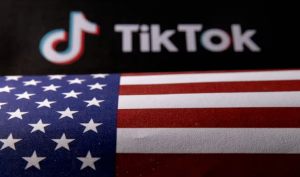’m a TikTok creator. I’ve used TikTok to build a multimillion dollar business, focused on sharing interesting things I’ve learned in life and throughout my years in college. TikTok allowed me to create a community and help further my goal of educating the public. I always feared that one day, it would be threatened. And now, it’s happening.
Why does the US government want to ban TikTok? The reasons given include TikTok’s foreign ownership and its “addictive” nature, but I suspect that part of the reason is that the app primarily appeals to younger generations who often hold political and moral views that differ significantly from those of older generations, including many of today’s politicians.
The platform has become a powerful tool for grassroots movements challenging established elites and has amplified voices advocating against capitalism and in support of the Black Lives Matter movement and women’s rights. Moreover, for the first time in modern history, Americans’ support for Israel has sharply fallen, a shift I would argue can be attributed in part to TikTok’s video-sharing capabilities. In particular, the app’s stitching feature, which allows creators to link videos, correcting inaccuracies and presenting opposing views within a single video, has revolutionized how audiences access information and form more informed opinions.
US Congress has cited concerns over Chinese data collection as justification for proposing a ban. This rationale might be appropriate for banning the app on government-issued devices, both for official and personal use. Other Americans, however, have the right to decide which technologies we use and how we share our data. Personally, I am indifferent to China possessing my data. What harm can the Chinese government do to me if I live in the United States? Also, I’d point out that viewpoints critical of Chinese policies have proliferated on TikTok, which would seem to indicate that the platform is not predominantly used for spreading Chinese propaganda.
If politicians’ concern were genuinely about foreign influence, we would discuss in greater detail how Russia allegedly used Facebook to bolster Trump’s campaign and disseminate misinformation. Following this logic, we might as well consider banning Facebook.
I spent a decade in college studying international affairs and psychology for my masters. So while I’m somewhat prepared for tough times in the event of TikTok ending, many others aren’t. TikTok hosts tens of thousands of small businesses who, thanks to the platform, reach millions worldwide. This platform has truly leveled the playing field, giving everyone from bedroom musicians to aspiring actors a real shot at being heard. A ban on TikTok would threaten those livelihoods.
A ban on TikTok would also threaten a diverse community of creators and the global audience connected through it. As a Palestinian, TikTok gave my cause a voice, a loud one. It became a beacon for bringing the stories of Gaza’s suffering to the forefront, mobilizing awareness and action in ways no other platform has.
Using TikTok’s live-streaming feature, I’ve been able to talk to hundreds of thousands of people each day about the issues Palestinians face. I personally watched the minds change of hundreds of people who asked me questions out of honest curiosity.
TikTok has made a real difference in educating people about what is happening in Palestine. The stitch feature is one of the most powerful tools for debunking propaganda spread against Palestinians. This feature does not exist on other platforms and was first created by TikTok; with it, creators can correct information and respond to the spread of misinformation in real time.
Removing TikTok would do more than disrupt entertainment; it would sever a lifeline for marginalized voices across the world – people like Bisan Owda, an influential young journalist in Gaza whose TikToks each reach hundreds of thousands of views – or creators like myself, whose family was driven out of Palestine in 1948, and killed during the Nakba. I’ve used TikTok to show all the paperwork of my great-grandfather’s land ownership in Palestine – and his passport – to show how his existence was taken away from him.
On TikTok, you’ll find thousands of creators from different ethnic groups teaching the world about their cultures. You’ll also find disabled creators sharing their journeys and experiences in a world designed for able-bodied people. UncleTics, for example, is a creator who lives with Tourette syndrome and creates content about his life while also bringing joy to his audience.
Banning TikTok wouldn’t just mean an enormous financial hit for the creators who use the platform – it would stifle the rich exchange of ideas, culture and awareness that TikTok uniquely fosters. We stand to lose a tool that has brought global issues out of the shadows and into the public eye. A ban on TikTok is a ban on ideas and hope.
Almost every creator and consumer of TikTok I have spoken to does not care about potential data collection by China. Creators, in particular, don’t expect privacy when we’re posting about our lives on a public platform. If Congress wants to enact laws that make it harder for social-media companies to potentially harvest our data, Congress should do it across the board for all social media platforms – not just ones which happened to be based in non-Western countries.
The gurdian

